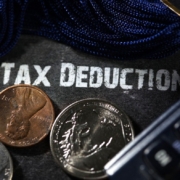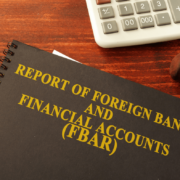Special PUA Benefits Available to Those Unemployed by COVID-19
- What is Pandemic Unemployment Assistance (PUA)?
- Find out how the PUA extends benefits for those unemployed by the COVID-19 crisis.
- Learn about self-employed coverage through PUA.
- Learn about the taxability of unemployment benefits.
- Find out more about withholding and estimated payments.
If you’ve become unemployed due to the COVID-19 pandemic, Fiducial has the information you need about a new program implemented by Congress. The CARES Act includes Pandemic Unemployment Assistance (PUA) provisions that extend and supplement state-provided unemployment insurance. Congress intended to lessen the financial burdens on individuals who have lost their jobs because of the COVID-19 emergency. PUA provisions allow states to extend unemployment benefits up to 13 weeks and waive the normal one-week waiting period. The provisions also extend benefits to self-employed individuals, those seeking part-time employment, or those otherwise ineligible for regular unemployment compensation.
How to qualify and apply for PUA benefits
To qualify for PUA benefits, you must not be eligible for regular (unrelated to the COVID-19 crisis) unemployment benefits. You must also be unemployed, partially unemployed, or unable or unavailable to work because of certain health or economic consequences of the COVID-19 pandemic.
The PUA program provides up to 39 weeks of benefits. Benefits are available retroactively starting with weeks of unemployment beginning on or after January 27, 2020, and ending on or before December 31, 2020. The amount of benefits paid out will vary by state. They are calculated based on the weekly benefit amounts (WBAs) provided under a state’s unemployment insurance laws. Under the CARES Act, the WBA may be supplemented by the additional $600 in unemployment assistance provided per week under the CARES Act.
Individual states administrate unemployment benefits, and benefits must be applied for through each individual state.
NOTE: At the time this article was prepared, many states were struggling to implement the provisions of the PUA program, making it difficult for individuals to quickly access these benefits.

Are PUA benefits taxable?
It is also important to understand that unemployment benefits are taxable income for federal tax purposes and also taxable by most states (this also includes PUA benefits). However, there are exceptions, and these states do not tax unemployment benefits.
Alabama
Alaska*
California
Florida*
Montana
Nevada*
New Hampshire**
New Jersey
Pennsylvania
South Dakota*
Tennessee**
Texas*
Virginia
Washington*
Wyoming*
*These states do not have a state income tax.
** These states do not have a state income tax but do tax interest and dividend income.
Federal tax withholding on unemployment benefits
It may be appropriate for certain individuals to have federal taxes withheld from their unemployment compensation. To do this, use Form W-4V. Wherever the unemployment is taxable by a state, the state’s estimated taxes can be paid as well. Not prepaying taxes on unemployment benefits can lead to unwelcome surprises for some when they file their 2020 tax returns. Congress created the PUA to help Americans in a time of need, so ask questions and stay informed. Don’t let today’s assistance bite you at tax time.
Have questions related to how unemployment income will impact your 2020 taxes and whether you should have income tax withheld? Want more info on how PUA benefits may affect you and your taxes? Call Fiducial at 1-866-FIDUCIAL or make an appointment at one of our office locations. Ready to book an appointment now? Click here. Know someone who might need our services? We love referrals!
For more small business COVID-19 resources, visit Fiducial’s Coronavirus Update Center to find information on SBA loans, tax updates, the Paycheck Protection Program, paid sick and family leave, and more.









